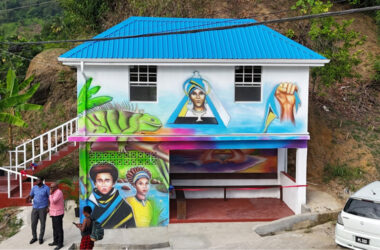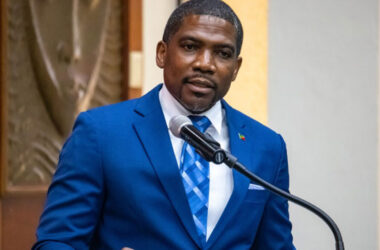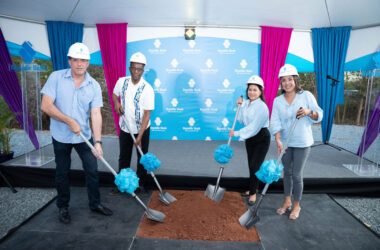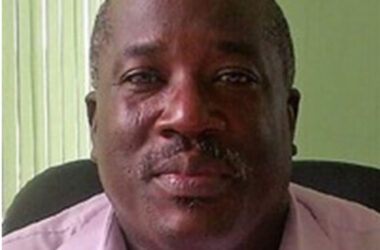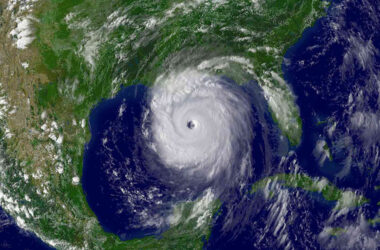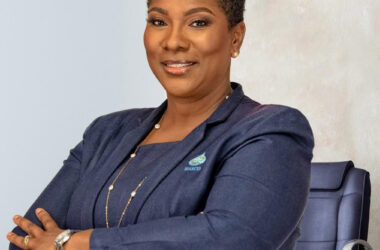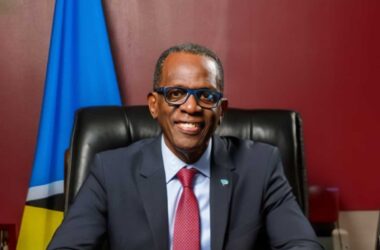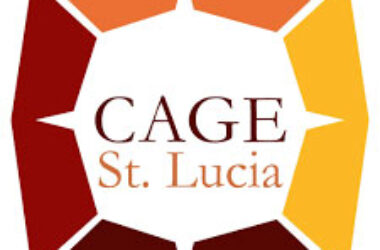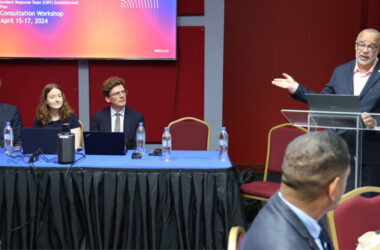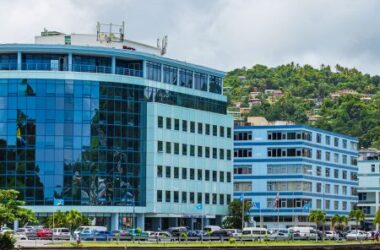By Reginald Andrew
Socioeconomic development and youth empowerment were feature issues discussed at last week’s inaugural meeting of the Organisation of Eastern Caribbean States (OECS) Council of Ministers: Youth and Sports.
The sub-regional group focused on charting a path for young people through their participation in sporting and other socially enhancing activities.
Addressing the gathering, at the opening session of the conference, OECS Director General Dr. Didacus Jules referred to the Revised Treaty of Basseterre(RTB) which covers the issue of Human and Social development, and details “development and the adoption of a harmonized policy for human and social development”.
The document also points to achieving and surpassing international goals for poverty eradication, for Universal Primary Education, gender equality and empowerment, health resilience and environmental sustainability, and the effective participation of all sectors of society in decision making at community and national levels.
“The RTB specifically commits each protocol member state to provide the enabling legislative policy and administrative environment needed to support social relations and cohesion for children, youth, men and women in the Economic Union area,” Dr. Jules said.
Added Dr. Jules: “The concern for social development of the people and youth of our region, while articulated in 2010, has become an increasingly urgent imperative as we are increasingly confronted by internal and external challenges that threaten our very survival as small states in a world of heightened uncertainty and volatility.”
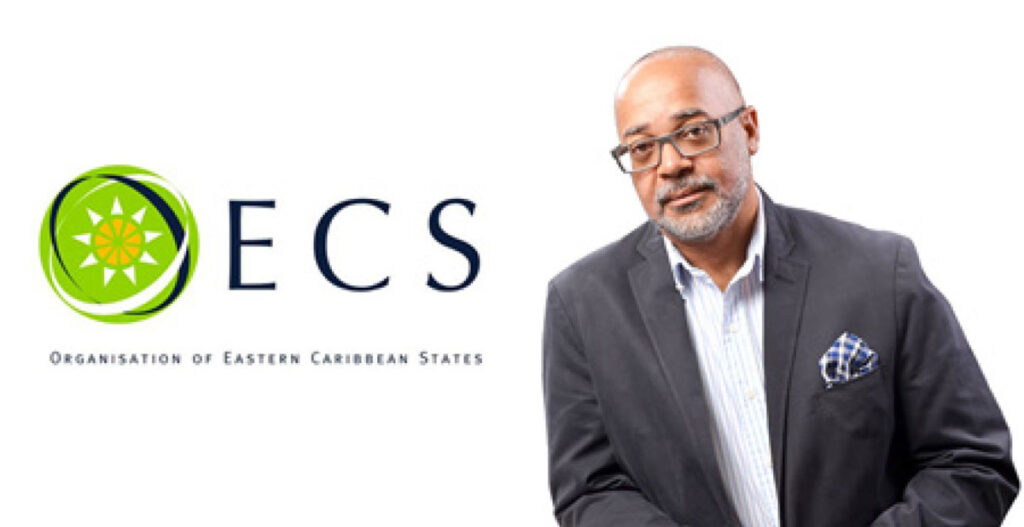
The OECS Director General described the inaugural meeting of the Council of Youth Ministers event as “a pivotal moment in our collective efforts to secure a brighter future for the youth of our region.
He said that Thursday’s event, coincided with the 5th anniversary of “our sister Guadeloupe’s accession to the OECS.”
Dr Jules listed some of the major challenge’s that the sub-region faces in Youth development. “They span a range of areas, from employment to youth crime and violence as a public health concern to the empowerment of the indigenous youth, to mental health concerns and far too many students being left behind in educational attainment.”
He continued, “All of these issues are inter-connected and multi-dimensional. One deficit leads to another and other deficits and the situation becomes a compounded generational crisis.”
Consequently, he said, the OECS Council has designed an approach to youth development “that is unique to the OECS and which is (an ideology) that is unique globally.”
Dr Jules said the new module, is a “significant departure from the old descriptive modules’ of youth development”. He adds that for too long “youths have been objects of youth development strategies designed by older folk who have not taken enough time to listen to the problems as perceived and experienced by the youth themselves and to recognize the aspirations they can articulate for themselves.”
He said the OECS approach that will be presented to the ministers “is one that has been refined over a couple of years and which draws on the best practices of various member states.”
Dr. Jules notes that it is not often that sports are associated to the youth agenda, “because in recognizing the increasing interest of youth in sports, we have noted the spectacular accomplishments being made by our sportsmen and sportswomen.”
The OECS official spoke about the youth attraction to popular sports, “who otherwise would have been at risk, and the world of sports has created a virtual arena of economic opportunity.
He stated that the association of the youth and sports portfolio does not mean that sports are viewed as an exclusive domain of youth. Contrarily, Dr. Jules said, “we believe that sports should be a whole of society lifetime endeavour of benefit to young, as old, to all gender, to all classes and a basic social foundation for healthy and vivacious living”.
“So, for us, sport is a vehicle of social development, as well as, economic advancement given the extraordinary talent we see being unleashed in and beyond the field,” noted Dr. Jules. “We recognize the capacity of sport to foster personal development, community engagement, and societal advancement.”
He said beyond the boundaries of traditional athletic training, there are benefits to be derived from investment in “sustainable initiatives” that include sports management programmes, providing educational pathways for youth interested in the administrative aspect of sports, such as, events management, marketing and governance.
“We have noted considerable progress in many member states in the strengthening of the administration and programming of sporting associations and we would like to encourage the formation of not only national, but OECS associations of various sporting disciplines,” declared Dr. Jules.
He also highlighted the field of Sports Journalism and Broadcasting as “creating avenues for aspiring journalists and broadcasters to cover sporting events, thereby amplifying the reach and the impact of sports beyond the field.”



